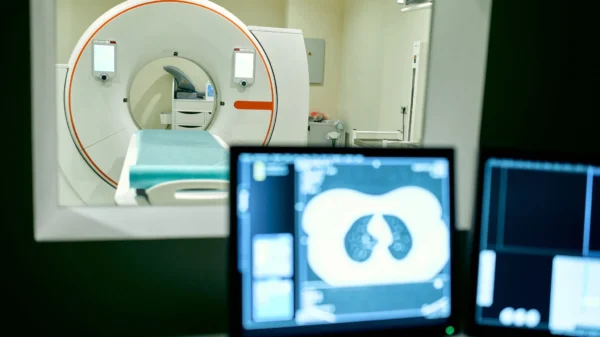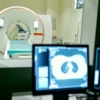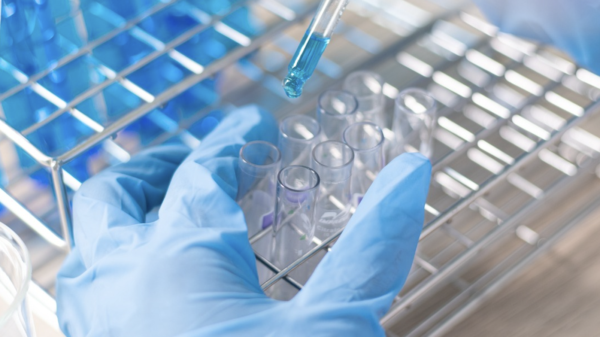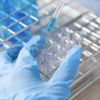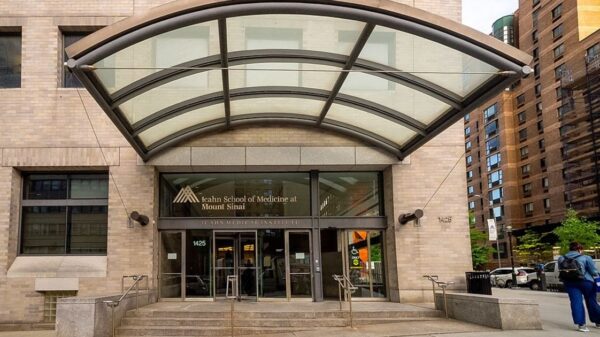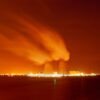A team of UK researchers from Blackpool Victoria Hospital say they have had immense success with a non-invasive lung cancer testing technique in clinical trials.
This saliva dip test combines infrared biospectroscopy, which enables structural analysis with light, and specific algorithms developed by the investigators.
For their studies, they examined 1,944 samples. Out of this saliva collection, 56 were taken from lung cancer-positive individuals. They say their test identified the cancer-positive specimens with 100 per cent accuracy.
“Many research laboratories worldwide are working to develop and implement this technology in a clinical setting,” Francis Martin, R&D Manager at the hospital and study participant, said in a news release. The next steps will be additional multi-centre trials and obtaining regulatory approvals, he explained.
Findings from their research were published in the Royal Society of Chemistry’s Analyst journal last month.
A saliva “dip” test to detect lung cancer has been successfully trialled by a team, led by Dr Dani Bury, based at Blackpool’s Victoria Hospital, with the findings now published in the Royal Society of Chemistry’s Analyst journal.
Find out more: https://t.co/fB4u1CPph0 pic.twitter.com/EEEuFD4RvP
— NHS Blackpool Teaching Hospitals 💙🌈 (@BlackpoolHosp) September 17, 2024
Read more: Breath Diagnostics takes aim at lung cancer with One Breath
Read more: Breath Diagnostics pioneers novel lung cancer breath test
Not the first to experiment with saliva testing
The American company Ausel Cancer Innovation has been developing a similar test.
“We are developing a revolutionary saliva-based test that enables early detection of some of the world’s most challenging cancers,” the company said in a LinkedIn post last month.
Ausel is currently enrolling over 350 patients with lung and breast cancer for a clinical study on the testing technique that will be held in Italy. In previous studies, the company says it has been able to identify lung and other cancers based on varying glycoprotein levels.
“The studies have shown how glycoprotein levels in saliva samples from patients with breast or lung cancer are differentially expressed compared to the healthy control,” Ausel co-founder Nick Ainslie said in a February interview with Technology Networks.
Researchers from the University of California Los Angeles started experimenting with a comparable testing method in 2021 too. Several organizations have been fine-tuning saliva testing methods for various other types of cancer. They have shown particular promise for identifying oral and throat cancers.
Read more: From Kentucky to Nevada: $6.8M grant aims to spread lung cancer screening success
Read more: UK hospital starts using advanced robotic tool for early-stage lung cancer detection
Other non-invasive testing methods take flight
Kentucky’s Breath Diagnostics Inc. has pioneered an accurate lung cancer breath test that has shown superiority to low-dose computed tomography (CT) scans in extensive clinical studies. Low-dose CT scans are the most widely used test in North America.
In July, researchers from the Memorial Sloan Kettering Cancer Center, which has multiple locations in the eastern U.S., wrote about the “E-Nose” lung cancer test they have created. This technology also analyzes a person’s breath. Like the Breath Diagnostics OneBreath test, it detects cancer in the volatile organic compounds (VOC) that get emitted by cancer cells.
“A sensor the size of a USB drive converts VOCs in the person’s breath into electronic signals called a ‘breathprint,'” the cancer centre explained. “The breathprint is then analyzed by a separate machine that can detect the presence of cancer in just a few hours.”
X-ray testing used in tandem with artificial intelligence has also proved to be quite efficacious. Multiple companies and organizations have been developing programs utilizing these two technologies for early detection.
As the addressable market for lung cancer screening is currently worth over US$63 billion in the U.S. alone, the potential return on investment for new technologies like these can be vast.
Liquid biopsies that analyze blood samples have been gaining popularity as a minimally invasive testing method too.
rowan@mugglehead.com






